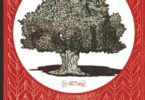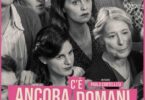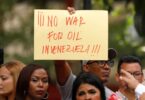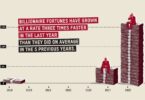05.04.2024
<<The Romanian and Russian version of this Statement can be accessed here>>
On 29 March, at a press conference, Minister of Culture Sergiu Prodan announced the project of setting up the “Universul” Centre for Culture and Contemporary Art in the building of the former “Universul” publishing house on Vlaicu Pîrcălab Street in Chișinău.
At the same conference, the Minister of Culture said that the sum needed to implement the project would be 10-15 million euros, the money identified by the Government from the sale of the terrain on Tighina Street for the future headquarters of the U.S. Embassy in Moldova, a project that would amount to “at least 250 million dollars”1.
Organisations, initiatives and workers in the independent cultural sector of the Republic of Moldova, following consultations and internal discussions within the consultative forum of the independent cultural sector, have developed the following position on the initiative of the Ministry of Culture.
1. We welcome the intention of the Ministry of Culture to initiate a process of identifying work and activity spaces for the independent cultural sector. The need for space has been a constant theme articulated by the sector in discussions with central and local public authorities over the last five years. As early as July 2019, seven cultural organisations signed a joint petition calling for establishing the National Centre for Contemporary Art and Culture in the building of the former Gubernial Zemstvo House.
2. We also welcome the intention of the Ministry of Culture to identify a space located in the city centre and the commitment of the Ministry to put the unused building of the “Universul” publishing house back into cultural circulation. The city centre must also make room for culture, including independent culture, whose value remains underused and marginalised. Workers from the independent cultural sector want to contribute both to the creation of a concept for the institution that responds to local needs and visions, and to the form of governance of this new institution, based on European models of public participation, for the benefit of the non-for-profit cultural scene and local communities. We request a meeting on this subject at the Ministry of Culture in order to discuss in more detail the concepts of similar institutions in the EU countries and beyond, the possibilities of their adaptation to the local context, as well as to find out about the Ministry’s intentions to launch a participatory process in this regard.
3. At the same time, we distinguish the two separate topics: the development of the former “Universul” publishing house to meet the needs and projects of the cultural sector, and the dismantling of the former Republican Stadium. We express our concern that the rehabilitation of the building of the future Centre for Culture and Contemporary Art “Universul” will be done, according to the minister’s statements, on account of the dismantling of another important public asset, a monument of culture, sport and collective memory, located in the historical centre of the city – the terrain of the former Republican Stadium in Chișinău. The participants in the consultative forum of the independent cultural sector wish to distance themselves from the project of the future headquarters of the U.S. embassy and reject any attempt to instrumentalise contemporary art for political and private interests (i.e. artwashing).
4. Regarding to the decision to sell the terrain of the former Republican Stadium to the U.S. Embassy, we consider it contrary to the legal framework for the reasons listed in the annex attached to this document. We seek clarification as to whether this decision was made at the governmental, ministerial or other institutional level.
5. Regarding the sale of the Republican Stadium terrain to the U.S. Embassy, we note the lack of transparency in the decision-making process. Residents of the city (and of the Republic in general) were not given the opportunity to express their views on the project in public debate and consultation procedures per the legislation in force. Several civic initiatives, citizens’ groups, and public individuals have expressed their wish that both the central public authorities (Government) and the U.S. Embassy ensure transparency and citizen participation in the decision-making process. A petition has even been circulated and has gathered more than 8000 signatures2; several public events have been organised by activist, artistic and civic communities. We recall that previous statements by top state officials have confirmed the need for public discussions on this issue. Prime Minister Natalia Gavriliță (when she was in office) and President Maia Sandu publicly promised to ensure broad discussions with society and interested groups. Those broad discussions and consultations with society have not occured and risk becoming broken promises. We call for a transparent process to be launched regarding redeveloping the former Republican Stadium.
6. When political and economic interests prevail over the public interest in safeguarding heritage, a dangerous anti-democratic precedent is set, and civil society and citizens are discouraged from actively participating in democratic processes, including protecting the cultural memory heritage. Also, the role of public institutions is not to trade one fragment of heritage (the Republican Stadium) for another fragment of heritage (the “Universul” publishing house building)but to protect heritage objects and buildings and to oppose the logic of fragmenting values by sacrificing one heritage monument for another. In the current circumstances, when heritage is under unprecedented pressure in the Republic of Moldova, we want the Ministry to have the power to stand on the side of citizens and the public interest in protecting heritage objects and buildings.
7. We draw attention to the fact that members of the independent cultural sector have proposed on several occasions that the terrain of the former Republican Stadium should be transformed into an urban park with minimal costs. We reject the wording in the official government communication about the state of “disrepair” and “dirt to be cleaned up” that would justify the terrain sale. We consider as regrettable and reprehensible the illegal demolition of the Republican Stadium during the PCRM government, and that this process risks being legitimised and continued by the current government, including by the Ministry of Environment and the Ministry of Health, which are keeping silent on this issue. in the meantime, the space of the former Republican Stadium has become an autonomous wild ecosystem with important ecological functions for the city. The trees grown on the stadium grounds supply the city with oxygen, absorbing the carbon dioxide of a city whose downtown is overcrowded with a large number of personal vehicles. We refer to best practices in the international context where other European cities have started actions to “rewild” and re-green the city, i.e. to reclaim green areas, to bring back and reintegrate nature into the urban context, as well as urban re-landscaping processes around pedestrians and not cars. Cities such as Paris, Dublin, Hanover, Berlin and Frankfurt are developing wild spaces and making them available to residents for environmental reasons (for example, by making them available to the public).
Based on the above considerations, as cultural workers, we reiterate:
– our desire to distance ourselves from the future U.S. Embassy headquarters project and our rejection of attempts at artwashing;
– we demand the organisation of a referendum or a public consultation process on the destination of the former Republican Stadium terrain;
– we call for the identification of alternative sources of funding for the “Universul” Centre for Culture and Contemporary Art;
– insist on a transparent process for the organisation of the Centre with the participation of its direct beneficiaries and avoiding forms of cultural extractivism (cultural extractivism involves the exploitation or taking over of cultural elements in a community or country, often without adequate compensation or without considering their context and significance for the culture concerned).
We express our wish to contribute to the founding of an institution that responds to the local context, needs and visions, and to agree together on a form of governance for this new institution and the fate of the former Republican Stadium, based on a public-civic partnership model following European examples of public participation. In this regard, the independent cultural sector consultative forum participants call for a clarifying discussion with the Ministry of Culture before responding to the Ministry’s invitation for contributions of ideas.
Annex. On the legal framework for the sale of the former Republican Stadium terrain:
According to the same article, on public use lands, “it is allowed to place capital constructions and installations in accordance with the special purpose of these lands, as well as light temporary constructions and installations (stalls, kiosks) without detriment to public use lands”. However, the future headquarters of the U.S. Embassy cannot be considered light temporary development in the form of stalls or kiosks!
– According to Article 29 of Law No. 330 on physical culture and sport, “the modification of the destination or the dismantling of sports bases and/or facilities owned by public or private property, including local public administration, is prohibited and sanctioned according to the legislation in force”.
– The land of the former Republican Stadium is also covered by Law No. 29 on the demarcation of public property as public property. According to Article 5(1) of Law No. 29, “public property is the exclusive object of public ownership of the state or administrative-territorial units and is inalienable, non-excludable and imprescriptible, and its civil circulation is limited under the law„.
– We also recall that the law allowing the sale of the land of the former Republican Stadium to the U.S. Embassy, namely Law No. 151/2018 on the transfer for valuable consideration of immovable property of 4 October 2019 was drafted in a context that was recognised as the “captive nature of the Republic of Moldova” by Parliament Decision No. 39 of 8 June 2019. , recognized the „captive nature of the Republic of Moldova”.
- https://gov.md/en/content/government-announces-setting-new-agreement-whereby-land-tighina-street-be-sold-future ↩︎
- Civil Society Calls for a Referendum Regarding the Fate of the Republican Stadium
https://www.change.org/p/pre%C8%99edintelui-rm-igor-dodon-prim-ministrului-rm-maia-sandu-pre%C8%99edintelui-parlamentului-rm-zinaida-societatea-civil%C4%83-cere-referendum-privind-soarta-stadionul-republican ↩︎
Signed by:
Coaliția Sectorului Cultural Independent din Republica Moldova
Centrul de Proiecte Culturale Arta Azi
Centrul pentru Politici, Inițiative şi Cercetări “Platforma”
Comunități Active pentru Democraţie Participativă
teatru-spălătorie
Alexandru Macrinici
Vlada Ciobanu
Pavel Brăila
AO Centrul pentru Artă Contemporană, Chișinău KSA:K
Victor Ciobanu
Asociația Oberliht
Ritmurile Rezistenței Chișinău (Rhythms of Resistance)
Studioul de Creație ZaO
Constanța Dohotaru
Asociația Art Platforma
Valeria Barbas
Teodor Ajder, Dr. în științele mediului, media și informațiilor
Anetta Dabija
Lutnița










[…] for the context: Collective Statement of the organisations of the independent cultural sector on the project of “Un… […]